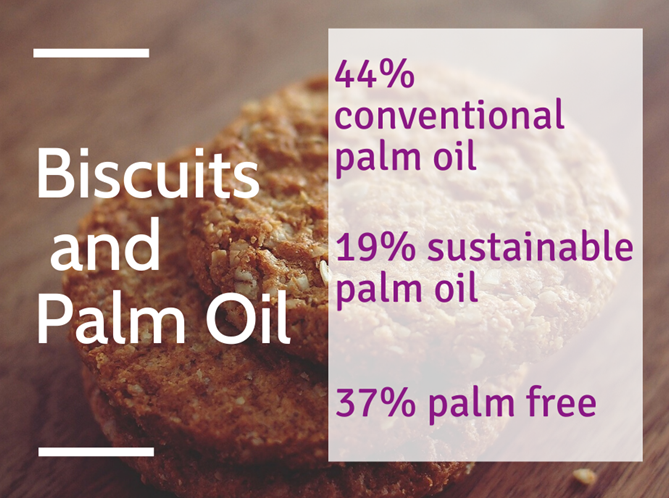What Is Palm Oil?
Palm oil is a vegetable oil that is highly efficient, cheap and very versatile. It is used in a huge range of products we all use regularly, and it tends to be grown in tropical regions of the world.
Why Is Palm Oil In The News?
Unsustainable palm oil production leads to deforestation, threatens Orangutans, Sumatran Tigers, Elephants and rhinos with extinction, as well as contributing to climate change. Local communities often suffer too.
Unsustainable palm oil production leads to a number of serious issues:
- Huge swathes of virgin rainforest in Indonesia and Malaysia have been felled to grow palm oil. Palm trees thrive in humid conditions found in these two countries and half of the forests in Sumatra and Borneohave been lost in the last 20 years.
- Loss of habitat for endangered species. Orangutans are critically endangered, listed on the IUCN Red List and the number of Borneo orangutans has declined by 25% in the last decade. At this rate they will be extinct in our lifetime. Many more species are at also at risk, including Sumatran Tigers, Rhinos and elephants. Rainforest destruction caused by palm oil plantations threatens 190 species on the ICUN Red list.
- Climate change. Tropical forests and peatland are cleared for palm oil plantations but Indonesian forests are incredible stores of carbon dioxide. So much so that they store more carbon per acre than the Amazon. Peatlands can hold 18-28 times as much carbon as the forest above them and these are often also cleared for unsustainable palm oil plantations. As a result of this, tropical deforestation accounts for 15% of global warming pollution In fact, largely because of palm oil related deforestation, this makes Indonesia the world’s third largest emitter of global warming pollution as a result. Only China and the USA emit more.
- Social impact. Lack of consultation with local communities about what happens to their land and worker rights are also a risk on some palm oil plantations. A report from Friends of the Earth found that palm oil companies use forced labour.
- Air pollution. Each year, more than 100,000 deaths in Southeast Asia can be attributed to particulate matter exposure from landscape fires, many of which are peat fires, lit for forest clearance – slash and burn.
How Do Supermarkets Shape Up On Palm Oil?
Although this destruction is taking place far from our daily lives, it is the choices that we all make in our regular trips to the supermarket that can make a real difference. We have looked at some of the most popular aisles in supermarkets to see how much palm oil there is in each and how much is grown sustainably. Here is what we found:






